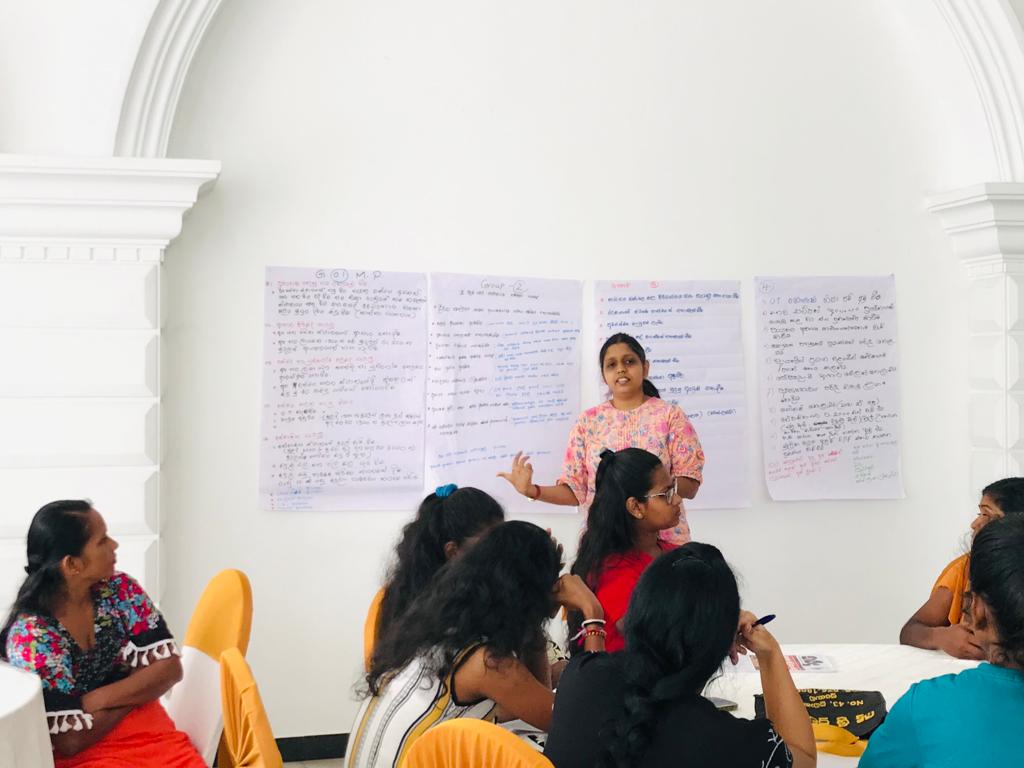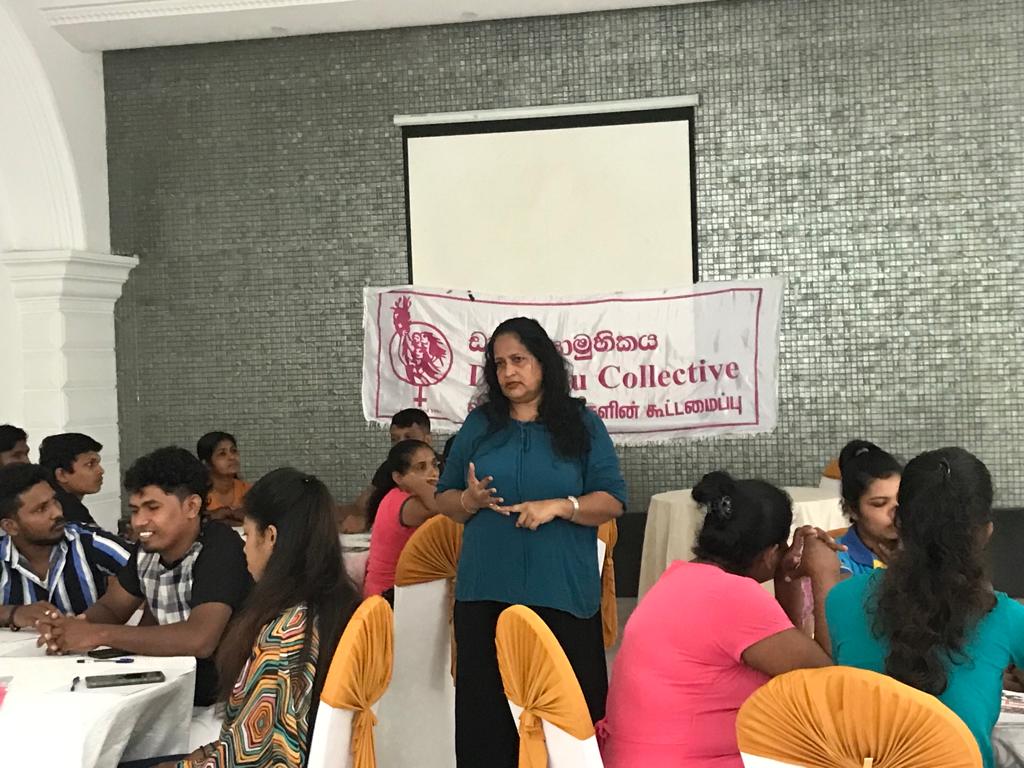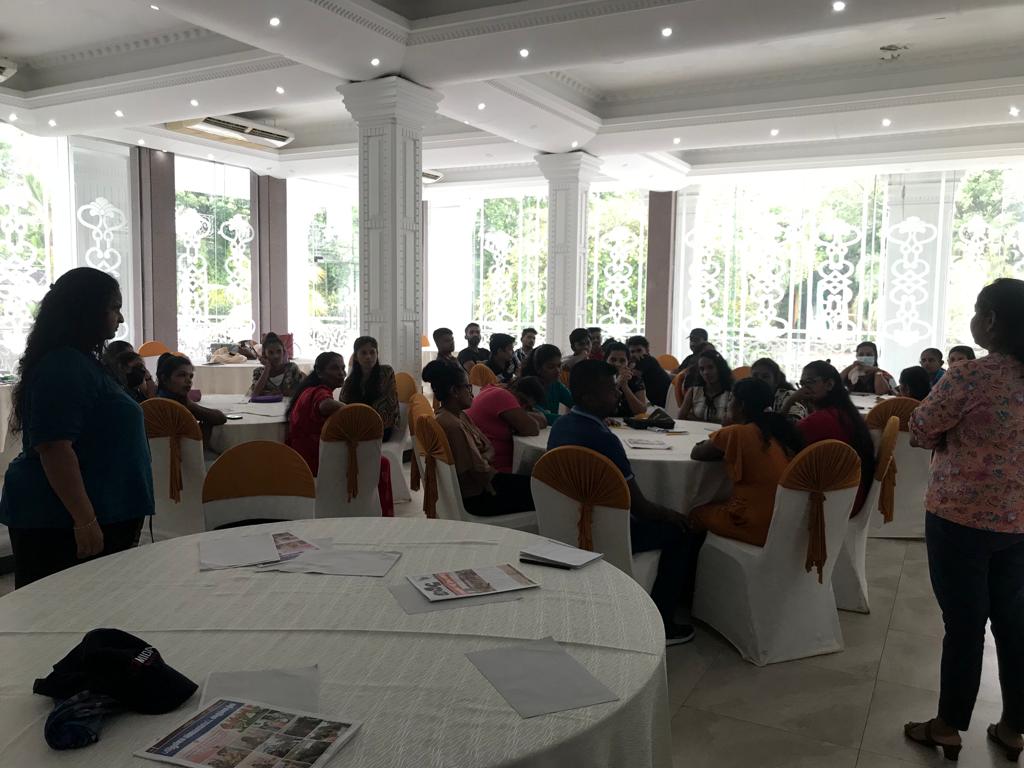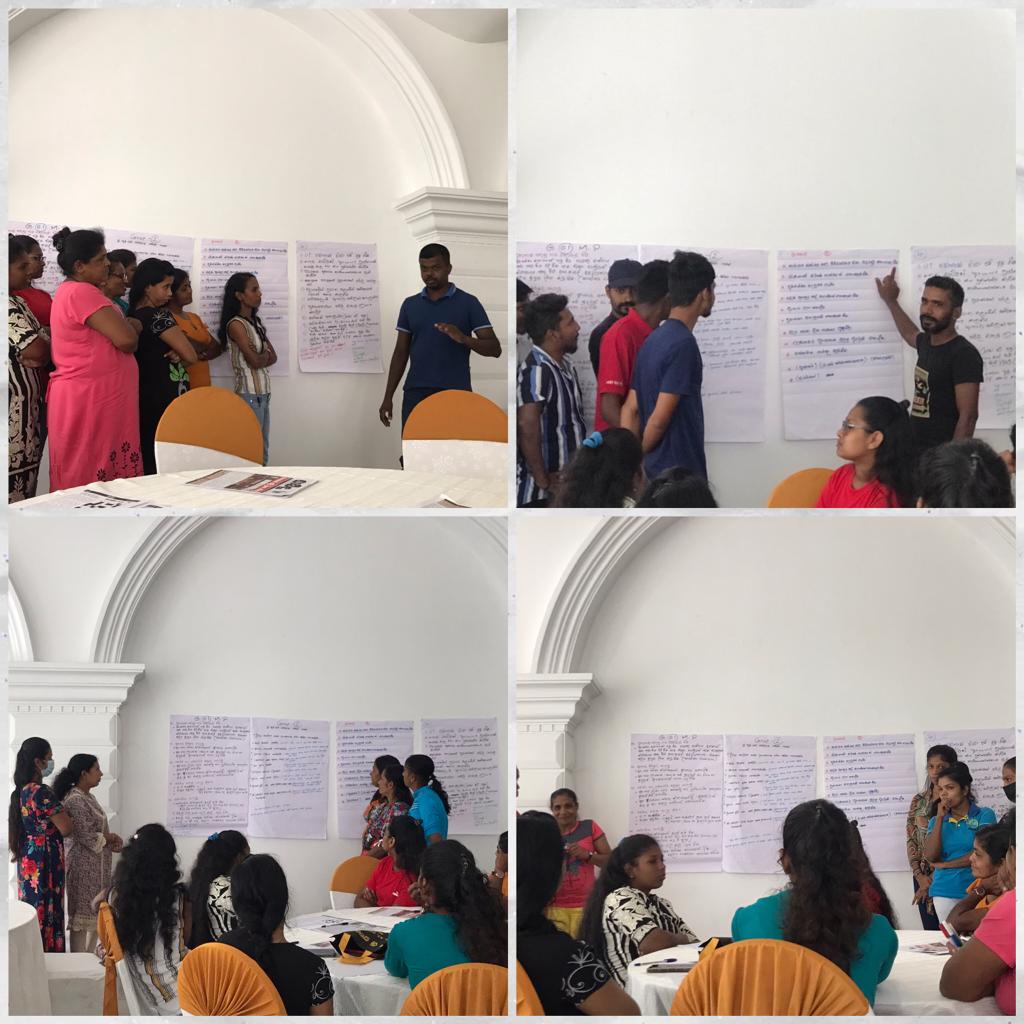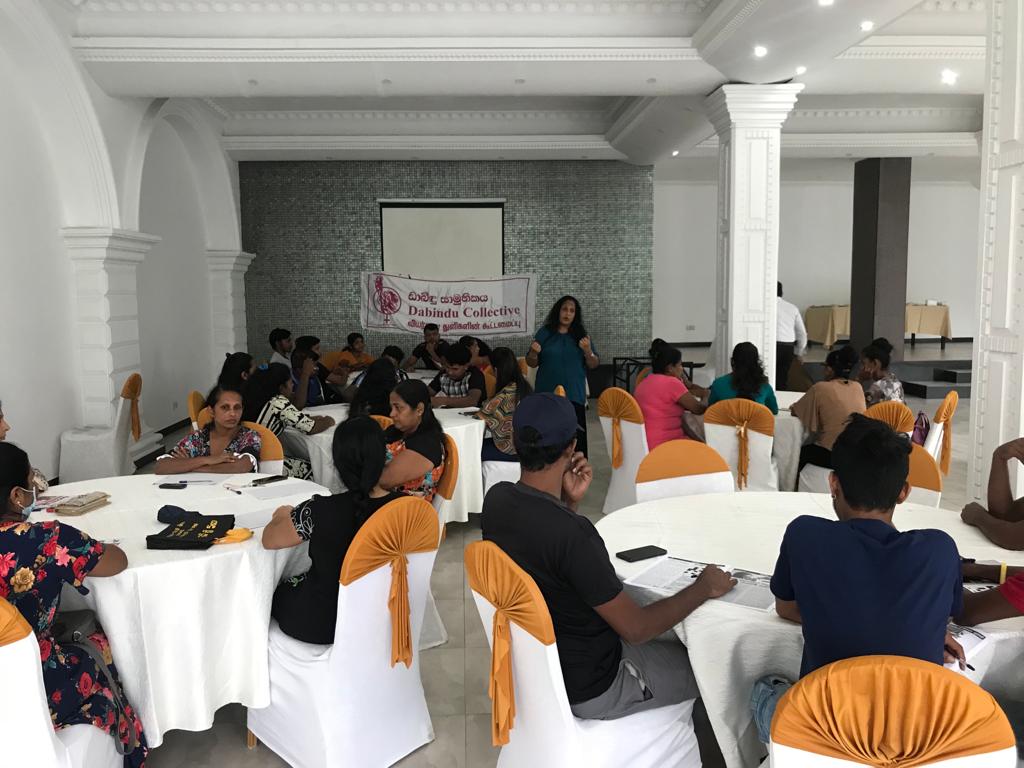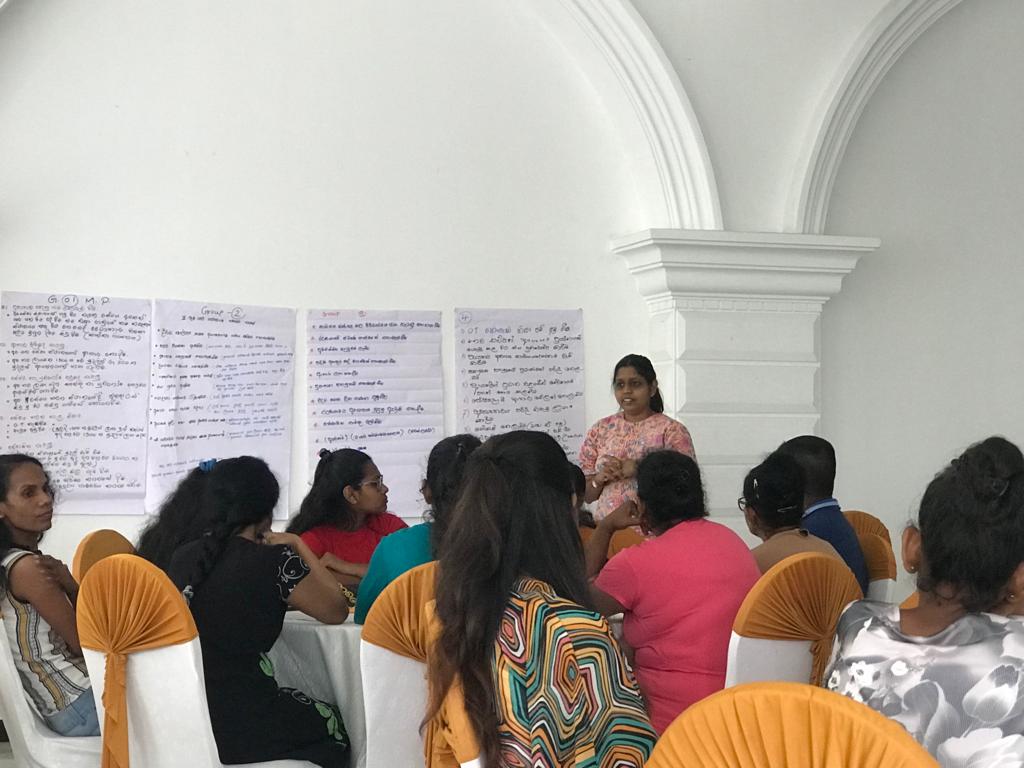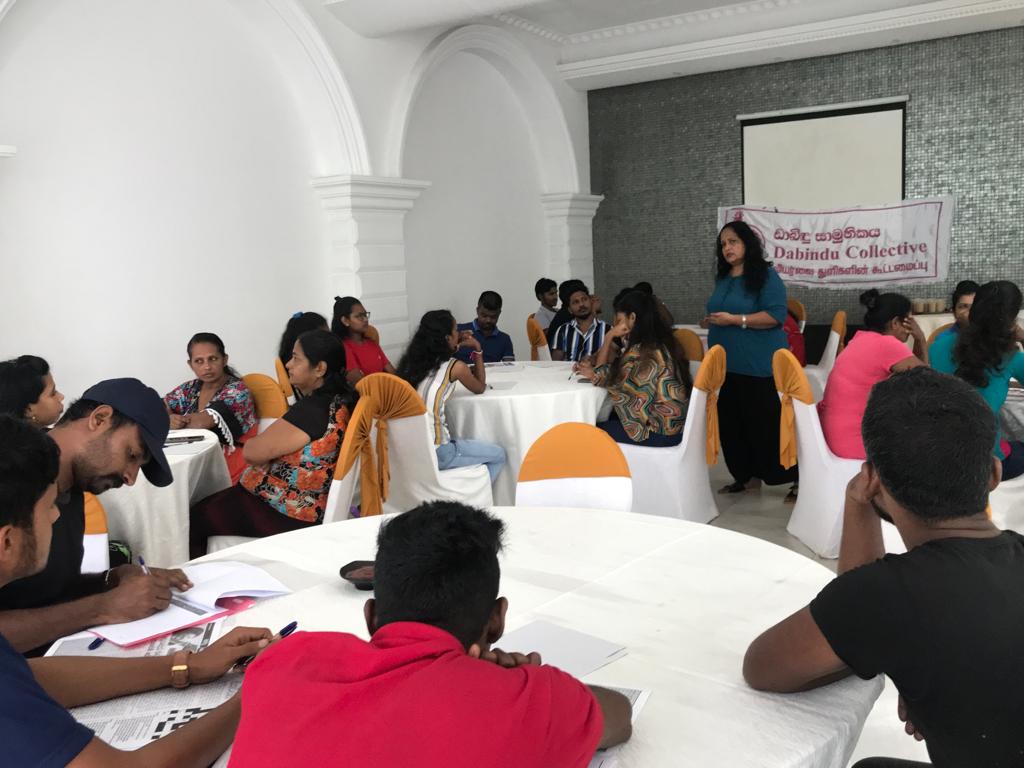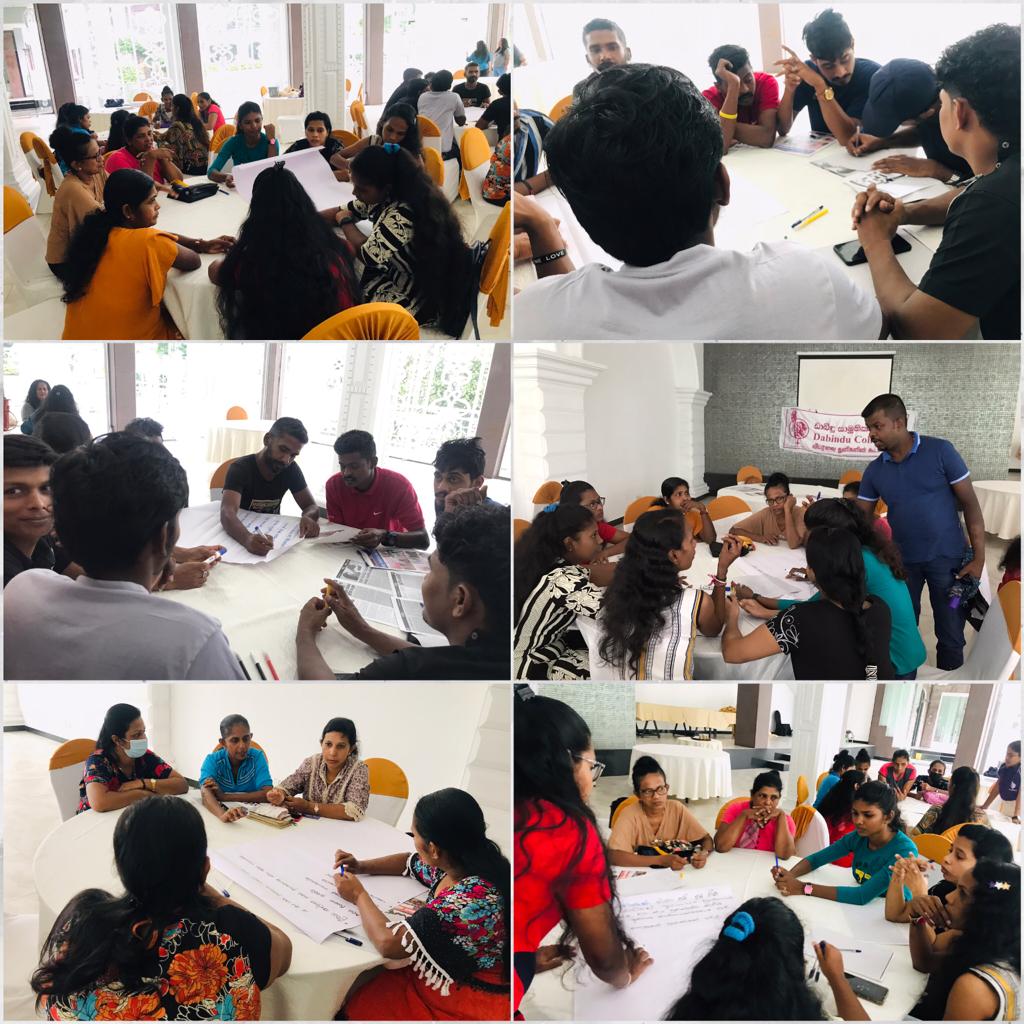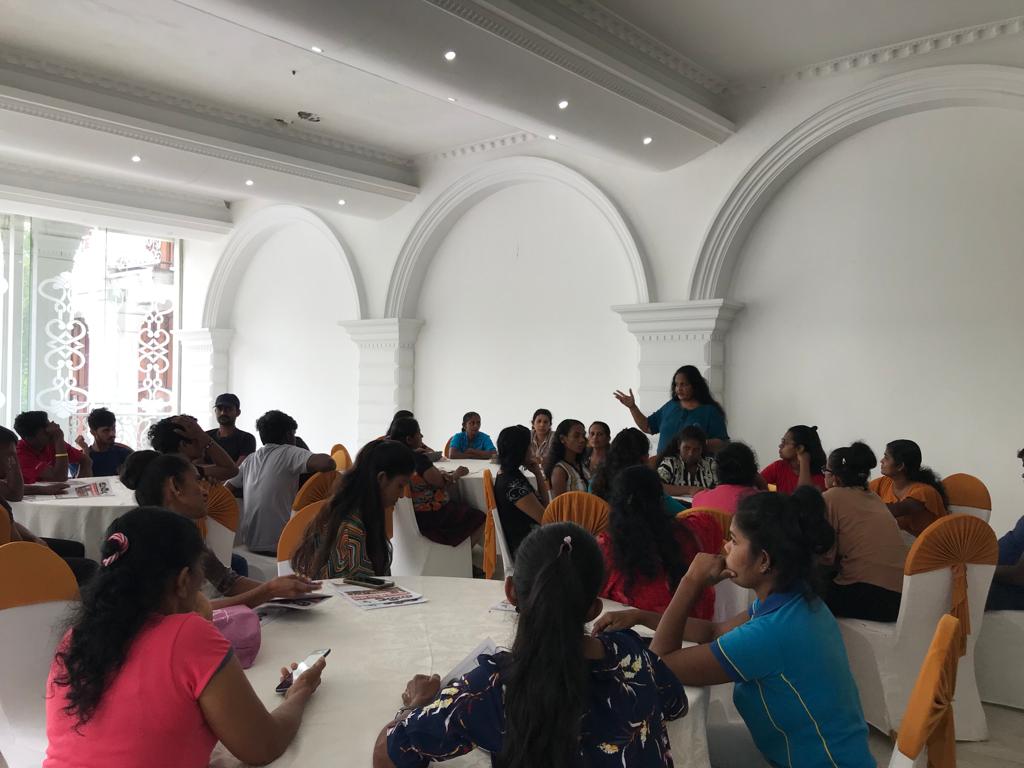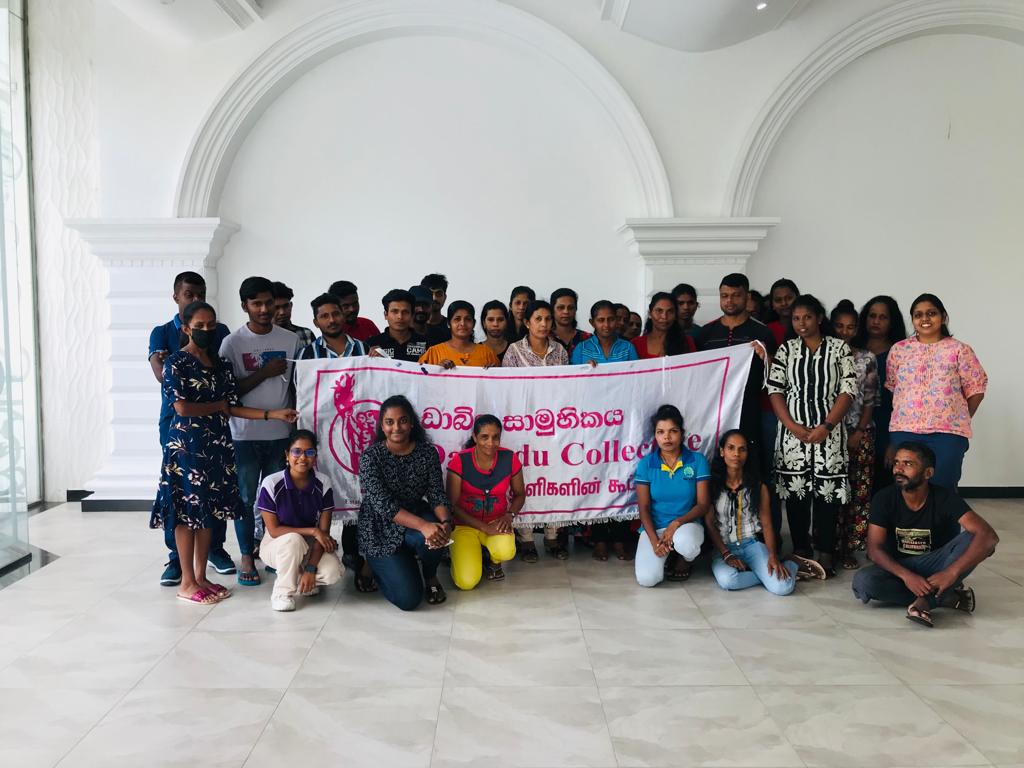During a meeting with FTZ workers in Biyagama they wrote down the problems at the factories. The majority of them were manpower workers and women.
Minister Manusha Nanayakkara is proposing to make work flexible so that women can join the labour force. Manpower, or daily wage labour, is one of the most flexible forms of labour. When asked if they want more night work and part-time work the women disagreed.
Their concerns were as follows
– Lack of work and low incomes.
Due to the economic crisis and factory closures, manpower workers are not getting enough work. Full-time, permanent workers can claim basic wages but not manpower workers. Therefore they suffer an income loss. The same happened during the pandemic when manpower workers lost work.
– No employer liability
Many of them shared that the factories refuse to take responsibility for them even in cases of occupational accidents and hazards.
They are charged extra for food and are not allowed to use the factory transport services even after night work. Transport is considered to be part of the workplace in case of an accident and employers are circumventing liability towards manpower workers.
– Loss of benefits
They are not paid maternity benefits or severance payments in case of job losses. Many of these workers are not registered in EPF/ETF pensions funds.
– Sexual harassment at the workplace
Workers were especially aware that night work also meant greater vulnerability to sexual harassment which is very common in apparel and other export-oriented industries.
Minister Manusha Nanayakkara has a simplistic view of flexibility and so do some privileged women who think the majority of women workers can also afford the same kind of flexibility they have.
For example, those who work as lawyers, doctors and accountants etc.. can set their own working time and rest days. They could afford to do that because their employment conditions are within their control.
However, this is not the same for an apparel worker who loses income, social protections and safety due to ‘flexible working hours’.
It is well established that employer-led flexibility is bad for workers whereas employee-led flexibility is good for them. For all the women doing ‘free lance’ work and glorifying flexible working hours, the laws are not targeting you. You are already with considerable bargaining power with or without the law. The law sets the minimum standards for women who do not have that bargaining power in their jobs.
Women entering the workforce as low-paid, unskilled labour cannot be compared with women who work as lawyers, accountants, IT professionals, doctors and so on. Even in these cases, women suffer income losses due to unpaid care work.
Flexibility is bad for women. What we need are proper jobs that can absorb women’s labour and use it productively. Not flexibility that exploits women in the name of a job and an income.
Even with all this flexibility apparel sector has a maternity return rate of 27% according to Brandix. That’s just 27 women out of 100, barely one-fourth, returning to work after having a child.
Unpaid care work is the reason that women stay out of jobs. If the state and employers are not ready to acknowledge and compensate for the work women do for free there’s absolutely no way to increase labour force participation of women meaningfully.
Source : Lakmali Hemachandra
